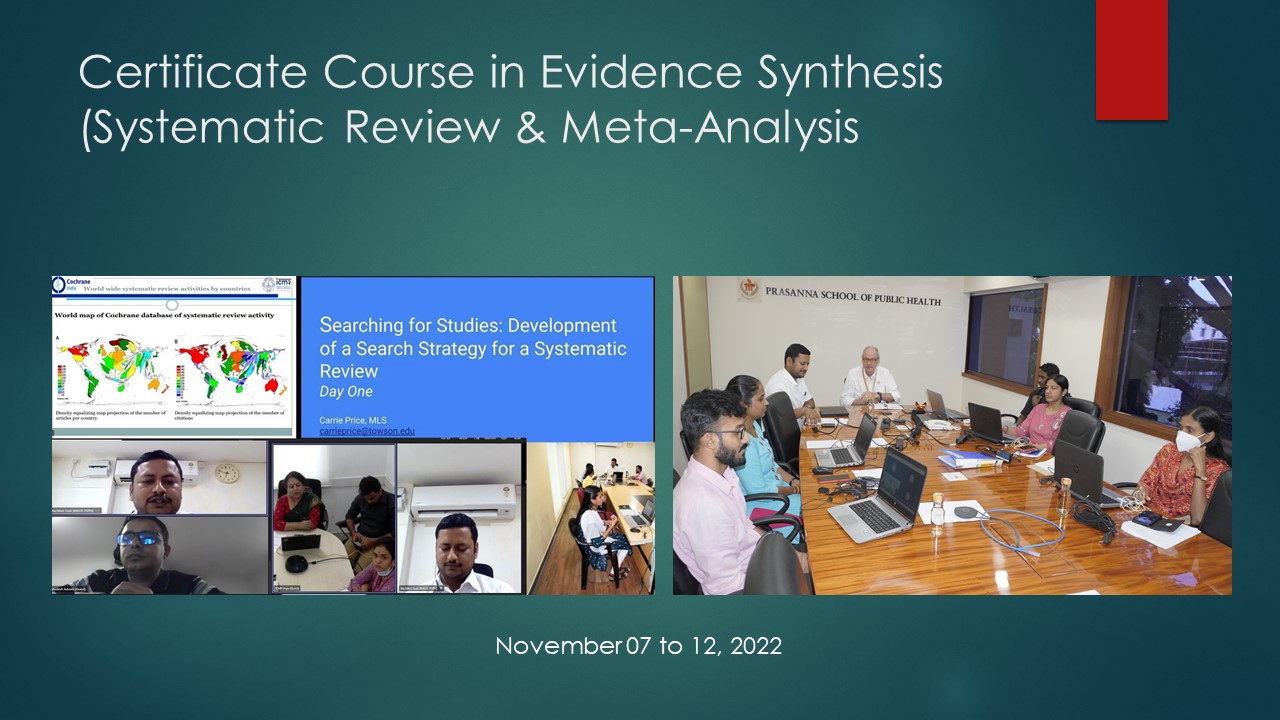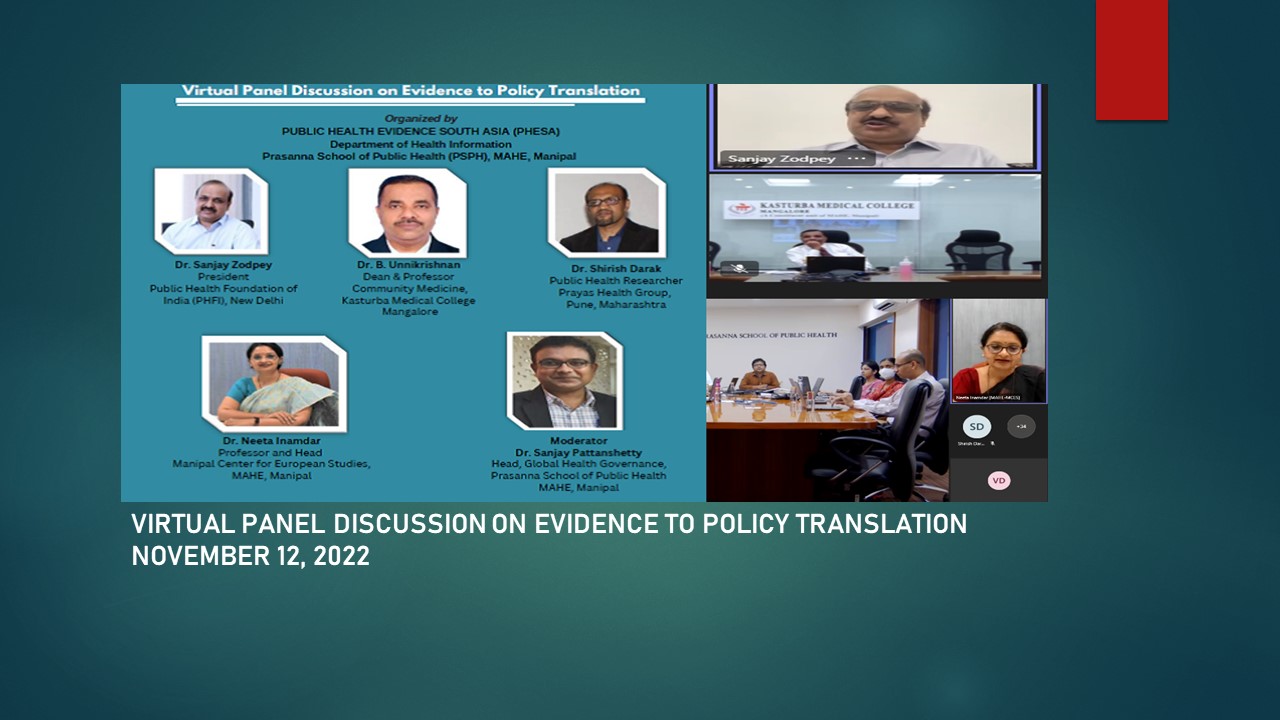Public Health Evidence South Asia (PHESA)
Public Health Evidence South Asia (PHESA) is an initiative which includes the South Asian satellite of the Cochrane Public Health (CPH), based at Manipal Academy of Higher Education. PHESA aims to meet the public health evidence needs of the South Asian Region. Presently, we have grown into an international network with global collaborations, including many universities, public health organizations and NGOs.
PHESA aims to partner with various organisations and individuals spanning subject areas in order to solve a variety of public health problems faced by low- and middle-income countries (LMICs). Our staff and interns have roots across the globe inspiring new ideas, debate, change and innovation; with a focus on capacity building in public health research.
Internship and Exchange Programmes
The Internship programme is an initiative of PHESA designed for undergraduates, postgraduates and doctoral candidates of diverse backgrounds for the duration of 1 month, 3 months, 6 months or for 1 year to work with PHESA.
Under this programme, students are involved in ongoing projects under PHESA and will get exposure to public health research. Students are educated on health disparities, health issues, professional development and community health promotion activities. A certificate is granted on successful completion of internship. International students can apply for our internship programme.
Academic Programmes
Certificate Course on Evidence Synthesis: Systematic Reviews and Meta-Analysis
PHESA, Prasanna School of Public Health, MAHE, conducts an annual ‘Certificate Course on Evidence Synthesis: Systematic Review & Meta-Analysis' every year. This course is based on the principle of “Learning by doing”. In the duration of this course, every step of a systematic review is elaborately explained and practical exposure is provided in the form of practice exercises, take-home assignments, group activities and hands-on training in systematic reviews. At course completion, the participants are expected to have gained in-depth knowledge about systematic review methodology and to come up with a systematic review protocol of their topic of interest.
Coordinator:
Coordinator,PHESA, Department of Health Information, PSPH, MAHE, Manipal.
Email ID: gudi.nachiket@manipal.edu
Contact us:
Prasanna School of Public Health, Manipal Academy of Higher Education, Manipal- 576104, Karnataka, India
Phone: 91820 2923449
E-mail: ph.cochrane@manipal.edu
Visit us @ http://www.phesa.manipal.edu
Publications
For full list of publications list: Click here
















